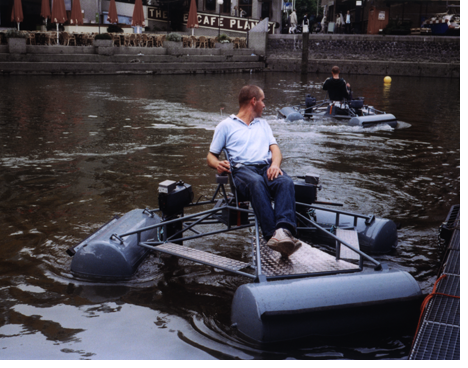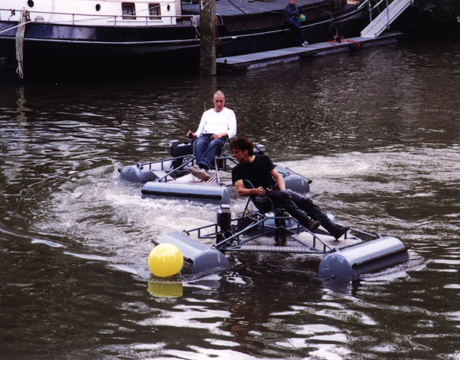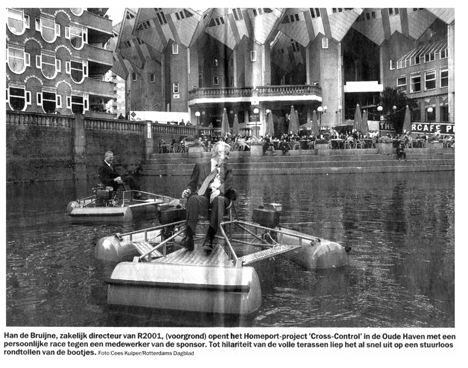


CROSS CONTROL 2001
Cross Control was initiated from the perspective of the rapidly changing experiences in the contemporary city, caused by the increased use of computer and mechanical techniques. Machines, intentionally developed as expedients, are being accepted at an increasing rate as indispensable goods. After all, by making use of machines everything moves faster and the physical exertion is reduced to a minimum. Because of this the machine often functions as a prosthesis, a necessary extension of the body. And the frequent use is in increasing measures influencing our perception of reality. Take the example of the simple act of controlling a mouse. It has little correlation with the actual trigger it generates. The same also applies for the insight into the series of actions that lies behind the mechanism that one single touch to an often virtual button generates. For most it’s totally incomprehensible but nevertheless they are succumbed to the fact that it does provides them with the required or, in some cases, the not so required result. Ultimately the actions should be executed from an adjustable chair; simply to avoid physical damage caused by the unnatural position. From this chair the user/controller feels like the master of a universe, at least as long as the machine keeps functioning as is required. When the machine fails, not living up to expectations, the user loses control and then the machine takes on a new meaning. One of annoyance and frustration. This emphasizes the autonomy of the machine and generally is the only real feedback it will ever offer.
In Cross Control both the physical perception and the control element in the relationship between man and machine are being manipulated and the consequence for human communication is tangibly investigated. The public is invited to take part in an individual two man boat race. The boats have been specifically designed for this project and because of the special characteristics of each this won’t be any ordinary race. More like a race against technique, where technique will not aid the men but rather act as a troubling element. In layman’s terms, the steering of the two boats has been switched. One boat is controlling the other and vice versa. Each of the participants will have to try to steer their opponent’s boat which means that they will in turn feel and naturally try to control the physical reaction from their boat. For the visitor this will create a distinct separation between the physical reality and the subconscious; while moving yourself, you will have to try to concentrate on the movements of your opponent’s boat. The ‘winner’ will ironically be the competitor who has his opponent’s boat first over the finish line.
Cross Control was developed for the Homeport Harbour City Project organized by Cell - initiators of incidents within the Rotterdam Cultural Capital program, 2001. Financer: CBK Rotterdam_BKOR


